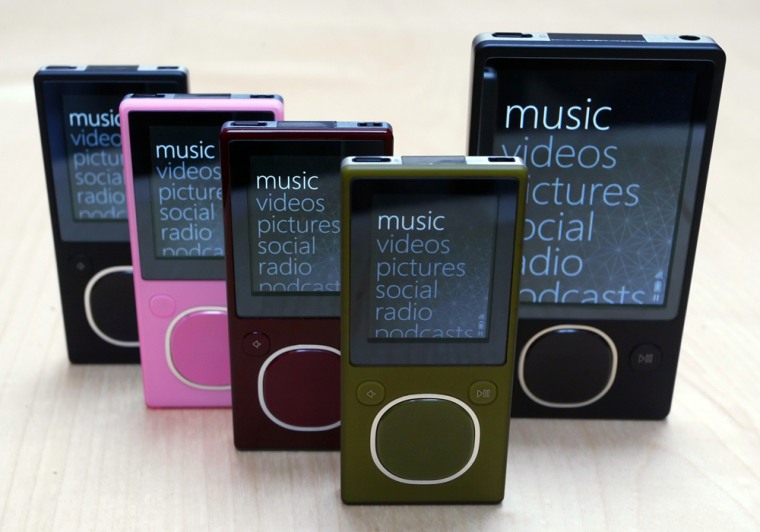In early December, a bombshell hit the consumer electronics world: Barack Obama was spotted using a Zune.
A seemingly innocuous Philadelphia City Paper blog post reporting the news sparked a firestorm throughout the online tech community that came to be dubbed "Zunegate." Message boards lit up with indignation over the fact that the tech-savvy president-elect — who has used an iPhone, iPod and various Macs — would have such an unhip device. The furor grew to the point where an Obama spokesman felt compelled to issue a statement confirming that "the president-elect uses an iPod."
The fact that not even the potential endorsement of a cultural icon like Obama can remove the tarnish from Microsoft's Zune speaks volumes about how difficult it is to break through with a viable competitor to Apple's iPod and iTunes store. And that's bad news for a music industry that desperately needs new services and partners to expand the digital music marketplace.
(Msnbc.com is a joint Microsoft - NBC Universal venture.)
Zunegate occurred just months after Microsoft introduced new music discovery features that garnered rave reviews. But that praise was largely forgotten by the time the Obama "scandal" erupted.
According to several experts in consumer psychology and brand strategy, the problem is not one of innovation, but of image. Apple's brand is so entrenched in the public consciousness as the arbiter of cool that any challenger faces a far greater task than simply matching its design and execution.
"(The Zune) might be a terrifically engineered product, but no one believes that Microsoft is capable of that kind of innovation that speaks to the right brain, and Apple has leveraged that famously in its recent ads," said Anirudh Kulkarni, founder and managing principal of Customer Value Partners, a customer relationship management firm in Fairfax, Virginia.
Apple spends millions of dollars in advertising defending its dominant position in the digital music market. The closest anyone has yet come to competing with it is Amazon's MP3 service. But given Amazon's status as a pioneering giant of online retailing, the shift to digital downloads wasn't such a huge leap for consumers.
Another hurdle facing would-be Apple competitors: Services that launch with the authorization of the music industry rarely get the same level of praise as those operating underground. Part of that is due to the user experience, as authorized services operate with more restrictions than unauthorized ones. But fueling the fire is the reputation of the music industry itself, smeared by things like digital rights management restrictions and copyright infringement lawsuits.
With major labels viewed as "the enemy" by many in the technology media, services that thumb their nose at the music industry earn a kind of Robin Hood-like respect. The ultimate example of this is Apple. When the majors criticized Steve Jobs for not allowing variable pricing of download tracks, for example, Apple supporters saw that as an attack on them as well.
"Once you as a consumer start to identify yourself by the things you own and relate to, it becomes personal," Kulkarni said. "A threat against the iPod is a mark of disrespect to them."
That's not to say it's impossible for an upstart to challenge an entrenched digital media brand name.
Take Hulu, the online streaming video site aimed at taking on YouTube. The NBC Universal and News Corp. joint venture was widely ridiculed at first, dismissed as just another clueless, corporate digital-content play. But through a combination of strong programming (such as Tina Fey's Sarah Palin impersonation on "Saturday Night Live"), a good user experience (free, legal, high-quality video) and a winning business model (it's expected to generate between $45 million and $95 million next year), the same bloggers and tech reporters who initially panned Hulu now view it as a viable alternative to YouTube. The Associated Press even named it "Best of the Web" for 2008.
But the Amazon MP3 store and Zune are a long way from doing to iTunes or the iPod what Hulu did to YouTube. Invading Apple's well-defended turf in digital music will take millions in marketing dollars and a well-executed plan, not to mention an innovative product that meets a need that Apple's platform doesn't.
Until that happens, expect Obama to keep his iPod.
